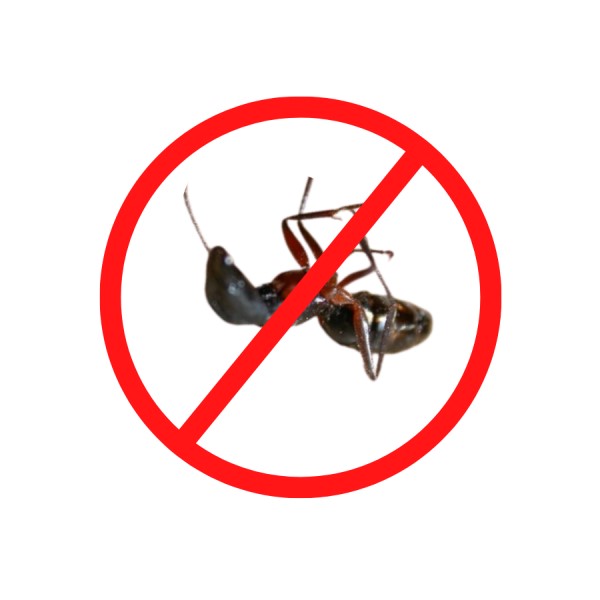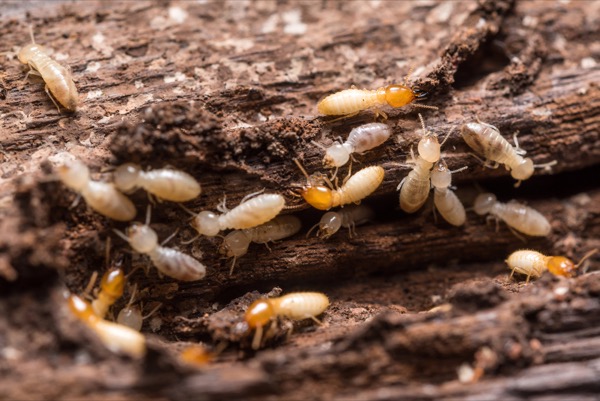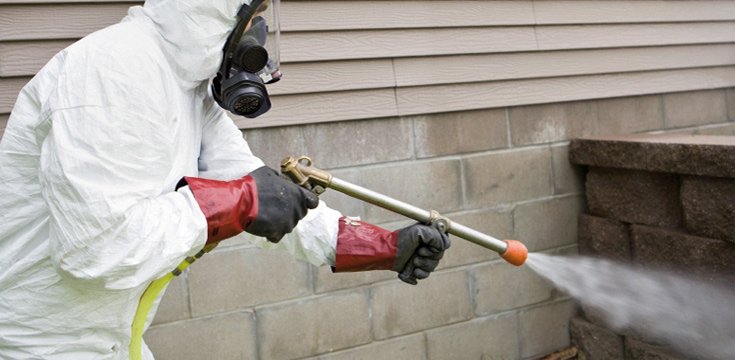Ecological Influence of Insect Control: Balancing Performance With Sustainability
The environmental impact of bug control is a crucial issue that needs a fragile balance in between attaining effectiveness in making certain and managing bugs sustainability of our communities. From the use of harmful chemicals that leak into our soil and water to the unexpected effects on non-target varieties, the repercussions of standard pest control methods are far-ranging.
Harmful Chemicals in Parasite Control
The use of unsafe chemicals in insect control poses significant ecological and health and wellness risks that call for careful factor to consider and mitigation methods. Insecticides, pesticides, and herbicides are frequently made use of to eliminate pests, yet their extensive application can cause unplanned repercussions. These chemicals can infect dirt, water resources, and the air, affecting not only the targeted bugs however also helpful bugs, wild animals, and humans.

To address these risks, integrated bug administration (IPM) techniques are being promoted as an extra lasting choice. IPM entails a mix of methods such as biological control, environment manipulation, and the targeted use of pesticides as a last hotel (ant control salisbury nc). By embracing an all natural approach to pest control, we can reduce the ecological and health and wellness influences associated with damaging chemicals while successfully managing pest populations
Influence On Non-Target Variety
Considering the unexpected consequences of bug control methods, the effect on non-target types is an important facet that needs extensive evaluation. While insect control steps aim to target details bugs, other microorganisms in the environment might be unintentionally impacted. Non-target types, consisting of helpful insects, birds, creatures, and even plants, can experience direct or indirect damage from chemical applications or biological control techniques.
Pesticides created to fight a specific bug parasite may harm pollinators like bees or natural predators such as ladybugs. Biological control representatives, if not species-specific, can present threats to unplanned targets, disrupting the environmental balance.
To reduce the effect on non-target types, incorporated parasite administration (IPM) techniques that stress a holistic approach to pest control are suggested. These approaches focus on making use of ecologically pleasant practices, reducing harm to useful organisms while successfully handling pest populations. Conducting extensive risk assessments and keeping track of the outcomes of parasite control initiatives are crucial action in securing non-target types and promoting total community wellness.
Dirt and Water Contamination
Unintentional environmental effects of pest control approaches prolong beyond affecting non-target types, with significant effects for soil and water contamination. Chemicals, herbicides, and chemical plant foods used in parasite control can seep right into the dirt and infect groundwater, presenting a hazard to both marine and earthbound ecosystems. Dirt contamination can interrupt the equilibrium of bacteria necessary for nutrient biking and plant growth, bring about decreased dirt fertility and performance. These chemicals can linger in the environment for prolonged durations, gathering in the soil and possibly entering the food chain.
Water contamination is another important concern connected with bug control techniques. Runoff from agricultural fields treated with pesticides can bring these chemicals right into nearby water bodies, impacting water microorganisms and water top quality. Impurities in water resources can have far-ranging effects, impacting not only aquatic life but also human wellness via the consumption of polluted water or water organisms. To alleviate dirt and water contamination from insect control activities, integrated insect management techniques that prioritize sustainability and reduce chemical inputs are critical.
Air Pollution From Chemical Usage
Exposure to airborne chemicals during farming applications postures a significant issue for air pollution control actions. When chemicals are splashed onto plants, they can volatilize into the air and type unpredictable natural substances (VOCs) and other air-borne contaminants. These chemicals can add to the formation of ground-level ozone, a significant element of smog that can have harmful effects on human wellness, crop productivity, and overall air quality. Furthermore, chemical drift, where pesticides are lugged by the wind to unplanned areas, can lead to the contamination of neighboring environments and water bodies.

Strategies for Sustainable Bug Control
In the realm of agricultural methods, applying sustainable pest control techniques is vital for keeping environmental balance and safeguarding crop yields. Sustainable insect control highlights using eco pleasant approaches to take care of pest populations effectively while reducing injury to non-target organisms and environments. Integrated Bug Monitoring (IPM) is an extensively embraced technique that integrates organic, social, physical, and chemical control approaches to attain long-lasting bug administration services.
One secret approach in sustainable pest control is promoting biodiversity within agroecosystems. By boosting all-natural opponents of insects, such as parasitoids and killers, farmers can reduce the demand for artificial chemicals. Crop rotation and diversity are likewise efficient techniques to disrupt pest life process and produce less favorable problems for insects to grow. Additionally, making use of pest-resistant crop ranges and using methods like catch chopping can help reduce parasite stress without relying greatly on chemical treatments. Eventually, by incorporating these lasting pest control approaches, farmers can accomplish an equilibrium in between pest administration effectiveness and ecological stewardship.
Conclusion
Finally, the ecological effect of pest control approaches must be meticulously thought about to stabilize effectiveness with sustainability. Unsafe chemicals used in pest control can cause soil and water contamination, air my response pollution, and damage non-target varieties - ant control services. It is vital to implement sustainable pest control methods to decrease these negative impacts on the atmosphere and advertise a much healthier ecosystem for future generations
By embracing an all natural approach to pest control, we can reduce the ecological and health and wellness influences linked with hazardous chemicals while successfully taking care of pest populations.

To minimize the air pollution caused by pesticide usage, it is vital to embrace integrated pest monitoring methods that focus on the use of non-chemical bug control methods, such as crop turning, natural predators, and resistant plant varieties. Sustainable parasite control emphasizes the use of eco friendly techniques to handle pest populations properly while minimizing damage to non-target microorganisms and ecosystems. Integrated Pest Administration (IPM) is an extensively taken on approach that combines biological, social, physical, and chemical control approaches to achieve long-term insect monitoring remedies.